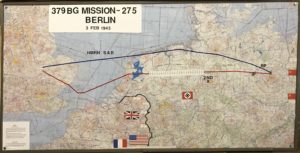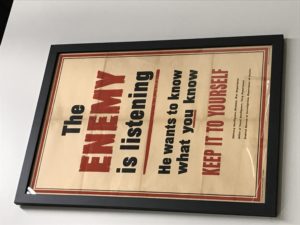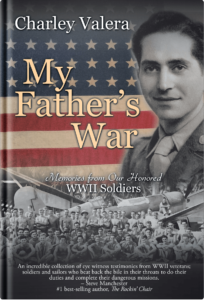Teaching in schools about WWII to our children?
Why is it that the events of WWII are not taught in our schools? Where did we go wrong? Some other countries teach their children about what happened. These are our mothers, fathers and grandparents. Just because they didn’t talk with you about it doesn’t mean it didn’t happen. It sure did!
To the hundreds of WWII veterans I’ve had the honor to talk with about their own war efforts, it wasn’t a short black and white film clip. It was really in full color with lots of red.
Sadly, It seems there were no survivors of WWII. Of course, many did live through it, but their dreams and daily events still bring them back to the horrors of 1941-1945. Even 70 years later, I’ve seen men look off into the distance when explaining what it was like watching a big bomber get shot down and no parachutes emerge, or see the tears well up in their eyes when they first saw POW’s in concentration camps, the stern looks I received when one soldier would explain not having food or water for 3 days but still having to fight the enemy or be killed.
Many millions were murdered at the behest of a madman. One person that captivated the attention of citizens across many nations to stir up a conflict unlike anything mankind had ever witnessed. Millions from every country fought good against evil, one man at a time, one hour at a time.
 The logistics alone are incomprehensible. “Like training all the fish in an ocean to swim in a certain direction on a certain day in a certain time.” One bombing mission alone used 2.5 million gallons of fuel. They would fly again tomorrow and the day after that with many missions going on at the same times and continue until an unconditional surrender was accomplished.
The logistics alone are incomprehensible. “Like training all the fish in an ocean to swim in a certain direction on a certain day in a certain time.” One bombing mission alone used 2.5 million gallons of fuel. They would fly again tomorrow and the day after that with many missions going on at the same times and continue until an unconditional surrender was accomplished.
Let’s not forget the Pacific Theater of War. We were at war at the same time with two major powerhouses. While Germany had a taste for defeat from WWI, Japan had never been defeated in its history. The Japanese fought with an all out kill-or-be-killed tenacity. Making them fierce and feared. Our US Marines fought on Japanese territory where we didn’t know the land, seas and air as they did. But the Marines fought through jungles, diseases, fear and a bravery that was ingrained deeply in each soldier. It finally took Atomic weapons to end that phase of the war and save millions of lives on both sides from slaughtering each other.
Meanwhile, while the troops were fighting and dying in foreign lands, those left behind had an enormous responsibility. Most were working in factories 6 days a week to build war machines. They all remember recycling their own household items like pots, pans, bicycles, paper and anything they could contribute to winning the War. Instead of buying produce at a store, the food was shipped to the soldiers and Americans were asked to grow their own gardens. Food was rationed and “Victory Gardens” sprang up everywhere, eventually 50% of Americans fed their broken families from one. Items like butter, gasoline and clothing were scarce. Then came along powdered eggs and instead of cooking oil, a paraffin wax. Citizens of today can’t imagine what their lives were like for our freedom.
Trying to consider what my own father’s life was like during the war has brought us into the memories of soldiers from all over the world and many facets of war and theaters. It took almost 3 years to write “My Father’s War: Memories from Our Honored WWII Soldiers” by interviewing dozens of WWII veterans to get their “stories.” Mostly using video and audio to record and play with tower speakers exactly the way they remembered it and not what I thought I heard. Leaving me with more questions than answers, I’d have to return several times to complete the short snap-shot of their lives. Compiled into short 20+ pages sections for 10 soldiers with a special Honorable Mention section with more stories of other soldiers worth noting.
Did they really march in the mud behind tanks, sleep in snow and ice for months, fly into battle with pilots only 20 years old? The answers and stories were much worse than I could have imagined. Yes, they did their heroic duties, but with determination to do whatever was necessary of them to win the war. Kill or be killed, plot, spy and risk or accept death, torture and imprisonment in unbelievable conditions. Where there were no rules of comfort, safety, cleanliness or nourishment.
We need to honor these great real American super-heroes while we can. Our memories are short-lived. Please, spend some time with your fellow WWII veteran and document how they remembered it. I promise you’ll cherish that interview for generations to come.
Charley Valera
Author, award-winning “My Father’s War: Memories from Our Honored WWII Soldiers”
www.charleyvalera.com.
facebook.com/MyFathersWarBook
Some more great reading about what American life was like.
http://www.u-s-history.com/pages/h1692.html








